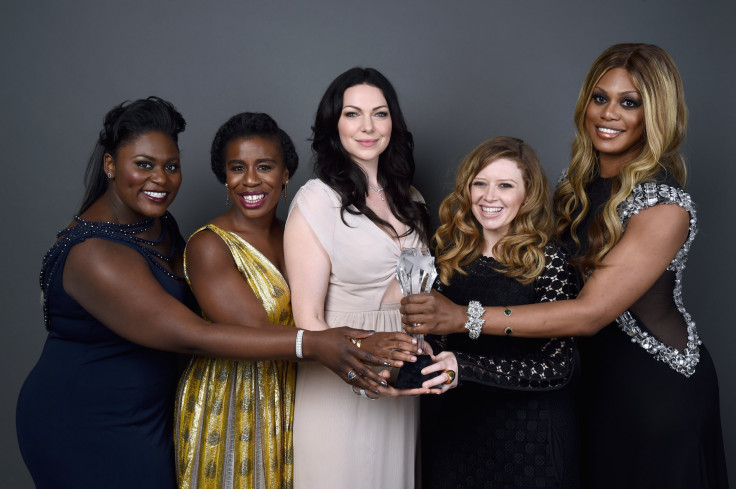Entertainment Unions Push Tax Credit To Diversify New York Film And TV

You would think that Hollywood, liberal stronghold that it is, would be ahead of the curve on racial and gender diversity. But this year — for the second year in a row — the #OscarsSoWhite controversy shed a light on an area where the business is clearly behind the curve.
Now, however, industry unions are backing a proposed law on the other side of the country that would incentivize diversity in TV and film in New York through production tax credits. The bill, currently working its way through the state legislature, could also bring more entertainment jobs to New York instead of Los Angeles, supporters say. It is a proposed tweak to the Empire State Film Production Tax Credit, which already boasts a formidable fund of $420 million, and would allocate $5 million more to give to productions hiring female and minority writers.
That tax credit has created jobs and brought revenue to New York when productions “take advantage of the 30 percent tax credit on qualifying production costs,” its sponsors say.
Now, the first-ever diversity clause, initially reported by Crain's New York Business, would siphon off $50,000 per hire. It tweaks the existing tax credit by putting writers’ salaries or commissions into sanctioned “production costs.”
"Writers' fees and salaries shall be eligible production costs subject to the provisions of subdivision (c)," the text of the bill reads. The law would define a writer as anyone "employed or retrained to write or revise scripts, screenplays, teleplays, dialogue, sketches, routines or narrations."
The entertainment industry certainly cashes in on the talents of nonwhite, non-male talent, from female superstars such as Tina Fey and Amy Poehler to successful black dramas like Fox's "Empire" and BET's "Being Mary Jane."
But the perception of diversity is largely smoke and mirrors: This year, protests erupted over the ocean of white nominations at the Academy Awards, from the grassroots all the way up to Oscars host Chris Rock. Meanwhile, not only has women's progress in television stalled over the past 20 years, but entertainment is also one of the top fields (behind media) where they make significantly less than their male colleagues.
As International Business Times has previously reported, data show that the best shot women have at getting on a show as writers, directors or crew members is if women are already at the top of the food chain.
The new diversity bill was originally introduced in 2013 but met opposition from Republican legislators. The revised version is backed by major industry unions, including the Writers Guild of America, East and the Directors Guild of America.
"We expect passage this session," WGAE's executive director, Lowell Peterson, told IBT. "The bill is significantly different from the one introduced in 2013 — and, perhaps more to the point, we have broader support this time, including the whole range of entertainment industry unions. And of course the public has been paying close attention to diversity in the industry this year."
In a further push to encourage the hiring of local talent, writers qualifying for tax credit must be New York taxpayers, a way to keep business within the state, where the entertainment industry has mushroomed since city and state production tax credits were introduced more than a decade ago.
"The real focus of the bill is to diversify television employment and television storytelling," Lowell said. "It is also true that it should provide a more stable base of television employment in the state — just as the overall production tax credit has provided a solid foundation of sustainable jobs across the industry."
That's not just good for the economy, the sponsors of the bill say, but also for the craft itself. “Some of these writers worked on scripts for shows such as 'Ugly Betty' and 'Law & Order: Special Victims Unit,' where the City of New York is a main character, without even visiting New York prior to writing an episode,” they wrote.
© Copyright IBTimes 2024. All rights reserved.






















